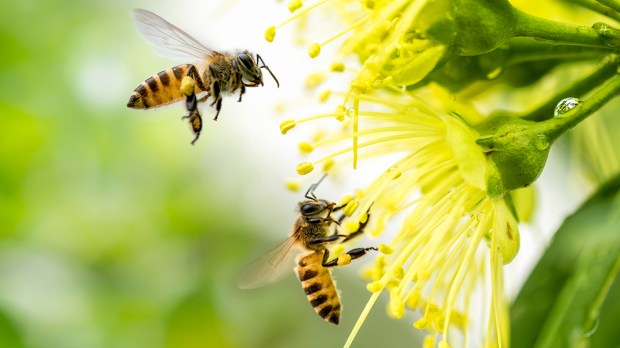Lenten Campaign 2025
This content is free of charge, as are all our articles.
Support us with a donation that is tax-deductible and enable us to continue to reach millions of readers.
When the French diplomat and poet Paul Claudel read through the Bible page by page formany long years, he read with the eye of an eagle and the rod of a water dowser. According to Claudel, everything spoke to one of the five human senses, evoking an image, a spiritual emotion, a lesson — as if he could hear the page breathing like a doctor listening through a stethoscope: “The Bible breathes,” he would say. It contains the breath of God, His Spirit that works in the history of his people and, above all, in the present, in our life here and now. Making use of the intelligence of the heart, we can breathe in this breath, like a kind of spiritual mouth-to-mouth recitation.

Read more:
3 Bibles that are the next best thing to having a theologian on your shelf
But learning to breathe it in requires patience. When Pope Benedict XVI inaugurated the Bernardine College in Paris in 2008, he traced the origin of our culture back to the fraternity of restless monks, in their collective goal to find God and share His word and their love for the sacred texts. Erudition, training, commanding languages and grammars — they all dedicated themselves to the art of reading. It was not a search for one sole meaning, but rather for the multiple levels of meanings in the words, with references cascading from one text to another in a symphony of understandings between texts. Because, as the monks say, knowledge accumulated merely unto itself is nothing more than boasting.
Like a bee
Reading helps us in our desire to find God. Upon finding Him, we find ourselves.Upon discovering a little more of who we are, we search for Him even further. The theologian William of Saint-Thierry, disciple and friend of St. Bernard of Clairvaux, explained to his brothers at the abbey that you need to savor the Word, “take a bite” every day and entrust it “to the stomach of memory” — not in a gluttonous, superficial reading of the words, or a quick scan, but in a struggle out of love, like Jacob’s struggle with the angel, where he comes to a certain recognition which he will gradually come to understand more fully.
So, what qualities do we need to have to read and breathe the Bible? The monastics were very clear on this: the qualities that bees have! Bees forage everywhere in search of nectar, in all of God’s flowers and, from this nectar, they produce honey. A bee’s intelligence,patience, and capacity to elaborate sweet food out of pollen are all the qualities we need for profound reading. Through them, we can develop a warm friendship with the word of God, and begin, as St. Gregory the Great said, the loving struggle to “know God’s heart.”
Damien Le Guay

Read more:
This Bible verse can help you sanctify every moment of the day

